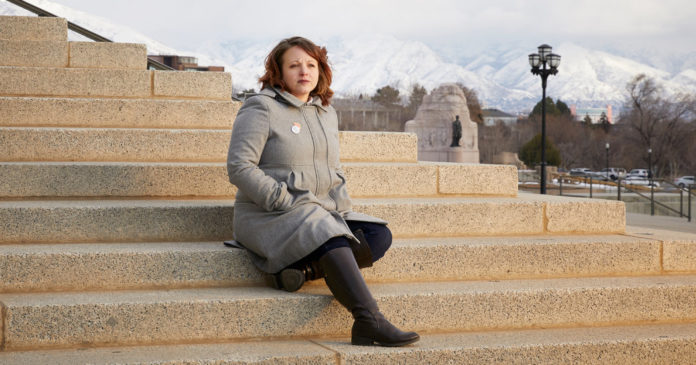What was most unsettling to Mr. O’Keefe were the racial and socioeconomic disparities apparent in his pelvic exam training.
Mr. O’Keefe’s rotation crossed between two clinics in Philadelphia. On one side of the street was a pearly white high-rise serving patients with private insurance, Penn Medicine Washington Square. On the other side was the more run-down Ludmir Center for Women’s Health, primarily for those on Medicaid and the uninsured. At the private insurance clinic, Mr. O’Keefe said, medical students mostly observed as their residents conducted gynecological procedures. At Ludmir, the quality of care was high, but Mr. O’Keefe noted that students were encouraged to get more hands-on experience, especially by stepping in to perform pelvic exams.
“My first experience doing a pelvic exam was in Ludmir, where it’s expected that medical students will do it,” he said. He recalled anxiously maneuvering his hands as he looked to the resident for guidance.
“It leaves a strange feeling in your gut, because it’s the most obvious example of how there’s different standards of care depending on your insurance status,” he said. “It’s like a tale of two clinics.”
A spokesman for the University of Pennsylvania’s Health System said the Perelman School of Medicine includes a dedicated session on health disparities in its obstetrics and gynecology rotation, and the school’s policy mandates that students can only perform pelvic exams under the direct supervision and at the discretion of an attending or resident physician. The spokesman said that the school “will review this matter to ensure that all patients are treated equally in accordance with our institutional policies and values.”
‘Is this a nightmare?’
For medical students, performing unauthorized exams can leave a sense of discomfort that fades with time. But for the patients, the scars can run deeper, sometimes rupturing their sense of trust in health care providers.
One evening in 2007, Ashley Weitz drove to a Salt Lake City emergency room, at Intermountain Healthcare LDS Hospital, suffering from uncontrollable vomiting. She was given an ultrasound and blood work, the standard approach; her attending physician ran through a list of possible ailments. Then he asked if he could run a test for sexually transmitted infections. Ms. Weitz declined, explaining that she was celibate and a childhood abuse survivor, and that she preferred to forgo the exam.
Source : Nytimes











